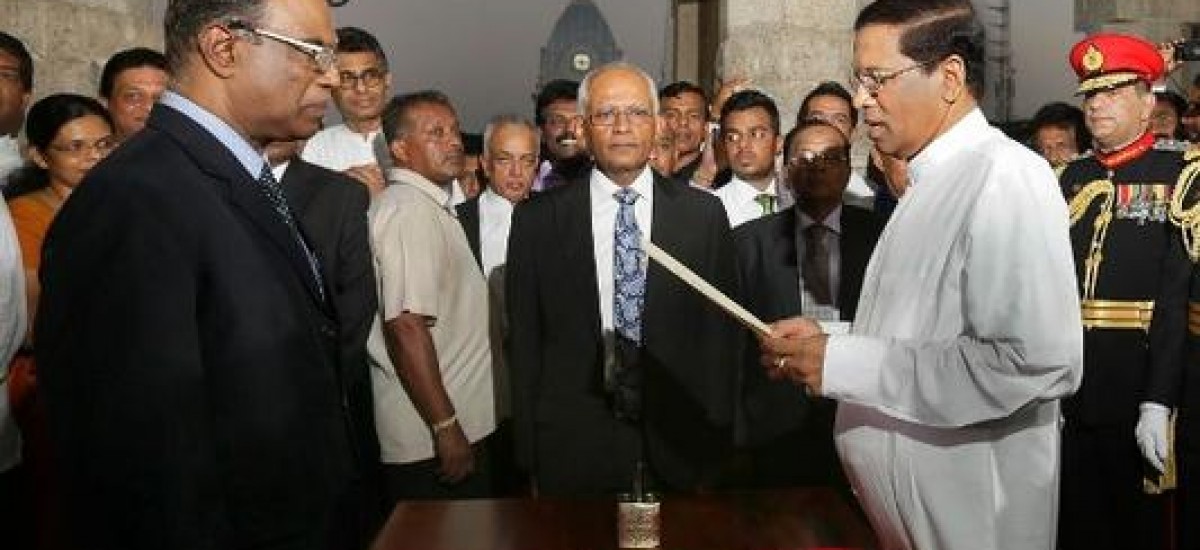Photo courtesy The Hindu
As the campaigning for both candidates has ended, and the celebrations for the victory of Maithripala Sirisena have begun, larger battles are still being waged, and will be still more important now that the elections are over. The elections held yesterday represent something much greater than a face-off between two personalities, or two different political parties. For many, it was a battle against ccorruption, nepotism, authoritarianism, religious extremism, fear, intimidation and significantly for many in Sri Lanka – discrimination against women.
Women collectively constitute over 50% of the population. It is in the best (and even selfish) interests of all politicians and leaders to address issues that matter to them. Not only because they collectively form over 50% of the voter base, but because economically and socially Sri Lanka would not be able to function without the contributions of women. Maithripala Sirisena and his team succeeded because they realized that without winning the hearts of women, this election could not be won. Mahinda Rajapaksa, and his cabinet of Ministers, failed up to the very last few days to realize that being disrespectful and insulting towards women would only affect their own results at electoral politics.
The Maithripala Sirisena campaign for “A New Sri Lanka for Women” has succeeded at reaching millions of women in Sri Lanka, and raising considerable awareness on a variety of issues. It is because Maithripala Sirisena and his team committed themselves to acknowledging the genuine concerns of women under the Rajapaksa regime, and then addressing them directly in his media campaign, social media campaign, manifesto, at gatherings such as the women’s conference at Vihara Maha Devi Park, and also in his official pledge to women, that his campaign has been so successful with these voters. It is because of the dedication and hard work of female political actors like Rosy Senanayake MP, Hirunika Premachandra, Jeevanee Kariyawasam, Anoma Fonseka, Samanmalee Gunasinghe, Sandhya Ekanligoda, Chandrika Kumaratunga, Thalatha Atukorala MP, the district coordinators of the Lak Vanitha, and other local government politicians, that the message succeeded in getting through to those who needed to hear it. It is thanks to the many women activists working behind the scenes that the message was effective, intelligent and powerful. It is because male politicians also felt encouraged to address the specific concerns of women in their rallies and pocket meetings, that the message was ever more prevalent.
Women did respond positively to this acknowledgement of their grievances. Over time women who supported Mahinda Rajapaksa reacted to political messaging by the opposition targeted at them that kindled the idea that women deserved better. The women who have shared posts and information on inequality during this election, and who were aggrieved by insensitivity towards them, have proved that they are capable of thinking independently from their households yet also collectively as women and then executing their will at the ballot box. Women are a group in Sri Lanka with an identity as or more pronounced as any other ethnic group or demographic. They share certain rituals and particular cultures unique to them, they have grievances as strong or stronger than any of the persecuted communities in this country, and their identity is both biologically entrenched and socially moulded.
In this election, women have shown that issues such as freedom from fear (rape, harassment, gender based violence), increasing cost of education and healthcare, barriers to safe drinking water, rising cost of living and high levels of malnutrition, a culture of respect (versus the current disrespectful attitudes towards women), child abuse, and low representations of women in leadership positions are issues that matter to them. Women workers have shown through the ballot box the need for significant reforms with regards to garment sector workers, migrant workers, domestic workers, and estate workers – many of who are women.
How could women possibly vote for a government that has denied them equal pay for equal work, that prevents them from equal opportunities and recognitions, that denies women workers who uphold our economy basic legal protections and in which Ministers publicly make derogatory remarks towards them? Women have stood in the Presidential Elections of 2015 in solidarity against these injustices, proving without a doubt that they will be crucial and savvy players in electoral politics in the years to come. One of the greatest follies of the Rajapaksa regime was to take women for granted in this election – to think that tbey would be foolishly deceived by staged baby-kissing photos, while at the same time his close associates openly held unacceptable attitudes towards them – all without impunity. Women’s message to Sri Lanka at this juncture of history was clear – that the authoritative, hyper-masculine, patriarchal model of leader that was adored in the past should be replaced with a compassionate, sensitive and concerned leader in the future. All intelligent leaders and politicians will know better than to ever take women so lightly again. It is up to them to see that the promises made towards women, specifically the promise for “A New Sri Lanka for Women” will be sincerely adhered to. Women will be watching.

